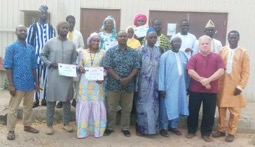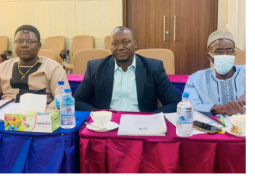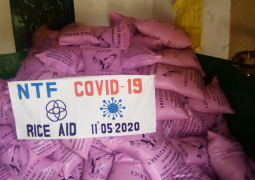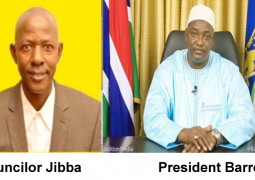
The training brought together participants from the Department of Water Resources (DWR), National Environmental Agency (NEA) and the University of The Gambia (UTG).
The “Project GCCA+ Climate Resilience Coastal and Marine Zone project for The Gambia” aims at consolidating results and positive experiences of the previous GCCA project “Support to The Gambia for Integrated Coastal Zone Management (ICZM) and the mainstreaming of climate change” 2013-2016.
Coastal communities will benefit from the project which will help them to adapt to impacts of climate change through institution strengthening, knowledge management, and demonstrated implementation of the National Decree of the Integrated Coastal Zone Management (ICZM) approach, at national and local levels.
The training covered topics such as the installation, running and management of Climate Predictability Tool; development and interpretation of products from climate models, including training on statistical methods for downscaling global model outputs; developing a practical training manual for the staff on these tools and models; and providing a report and recommendations to DWR and its partners for the further development of climate data and downscaled products in The Gambia.
The training also showcased a wide variety of case study examples to illustrate the teleconnections between observed rainfall over The Gambia and Sea Surface Temperatures (SST) over different oceans of the globe, including: the Pacific Ocean, Indian ocean, South Atlantic Ocean and North Atlantic Ocean.
It also provided a platform for collective reflection on experiences and challenges in the provision of climate services.
Lamin Mai Touray, Director at the Department of Water Resources said the training was important as weather and climate information generate crucial seasonal rainfall prediction for decision making, economic development and saves lives and properties.
He added that the training has enormously built the capacity of the forecasters and would go a long way in enhancing quality and timely delivery of weather and climate services.
He said they plan to organise another training workshop on climate change adaptation later this year as well as hope to continue collaborating with their partners to promote Integrated Coastal Zone Management to help adapt to the impacts of climate change.
Aruna Jobe, Project Coordinator for the Global Climate Change Alliance Plus (GCCA+) under the National Environment Agency said he hopes participants would use the knowledge gained to enhance the delivery of their services to Gambia by providing adequate information on early warning in supporting the resilience capacity of rural communities.
Jarriatou Sanneh, in delivering the vote of thanks on behalf of her fellow participants thanked the trainer for impacting the needed knowledge and skills in them. She also thanked the organisers and funders of the training.




